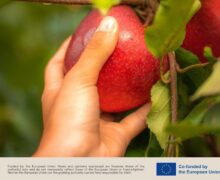Vienna Taking Measures To Tackle Potential Over-Tourism

In November 2018, Vienna achieved a new tourism record with 1.3 million overnight stays (+15.5%). For the period from January to November 2018, there were 14.8 million overnight stays and an increase of 5.1%.
The Viennese travel industry has generated an income of 94.5 million euros in October (+22.3%). In the period from January to October 620.7 million euros came into the coffers of the city, an increase of 8.1%. But is Vienna supposed to fear the effects of over-tourism?
Peeing in the public or loud roars in the streets are not liked anywhere and they go hand in hand with the phenomenon mentioned above. For example, Amsterdam is now fed up with all the tourists drinking in the canals. The city has introduced a whole bundle of new rules to regulate the flow of tourists. It bans new hotels and souvenir shops and limits private rentals. There are also hefty penalties for public drunkenness. But Amsterdam is just one of many examples. Should Vienna take an example from the Dutch capital?
There is growing displeasure in Austria, including Vienna with over-tourism. There are complaints about tourist cruise ships along the Danube or overcrowded buses. However, according to a study by the Austrian Hotel Association in cooperation with Roland Berger, Vienna is in a core group of European cities. Tourism is healthy compared to its size.
Tourism director Norbert Kettner has praised Vienna as a tourism destination. “We have been marketing Vienna as a premium destination for years and we do not cooperate with the drivers of mass tourism, such as shipping companies,” he said. The pressure of the first district of the city is not a matter of visitors, rather the working population of the country itself. 200 thousand people commute to Vienna and half of them work in the first district.
Despite the overall stability and good numbers, Vienna wants to maintain the balanced situation. The city has launched a new campaign called Wien Tourismus that encourages guests to visit districts outside of the city entre like St. Stephen’s Cathedral, Hofburg and many museums.
The city center is the first and often only destination for many tourists in Vienna. Targeted advertising should now provide some relief, says Norbert Kettner. The goal is to take the tourists away from the hotspots and distribute them better around the city.
“What we do on the marketing side is that we consistently deal only with the premium and luxury segment in tourism. We do not do activities that encourage day or mass tourism,” Kettner said, confirming Vienna’s strategy for a sustainable industry to keep the city center worth living for the residents of the Austrian capital.
source: Tourism Review




